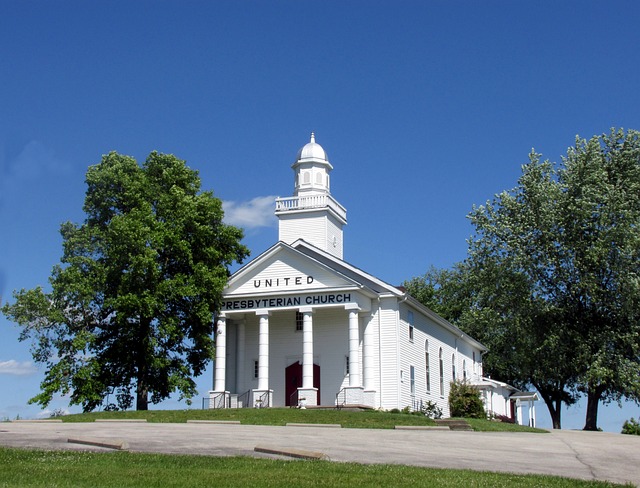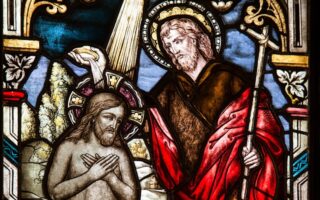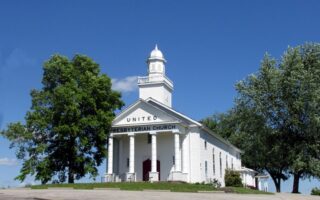Presbyterians practice a form of Protestant Christianity that emphasizes the sovereignty of God, the authority of Scripture, and the priesthood of all believers. They follow a system of church governance led by elected elders, and place a strong emphasis on education, social justice, and community involvement.
Table of Contents
The Sacraments in Presbyterian Worship
Presbyterians are known for their rich and meaningful worship practices. One important aspect of their worship is the observance of sacraments. Sacraments are sacred rituals that hold deep significance for the Presbyterian community. In this article, we will explore the sacraments practiced in Presbyterian worship and their importance in the life of believers.
The Presbyterian Church recognizes two sacraments: baptism and the Lord’s Supper. These sacraments are seen as visible signs of God’s grace and are central to the faith and worship of Presbyterians. Let’s delve into each sacrament and understand their significance.
Baptism is the first sacrament that individuals experience in the Presbyterian Church. It is a symbolic act that represents the cleansing of sins and the initiation into the Christian community. Baptism is performed by sprinkling or pouring water on the person’s head, symbolizing the washing away of sin and the new birth in Christ. It is a powerful moment of spiritual transformation and a public declaration of one’s faith in Jesus Christ.
The sacrament of baptism is not limited to adults but is also extended to infants. In the Presbyterian tradition, infants are baptized as a sign of God’s covenant with them and their inclusion in the community of believers. This practice reflects the belief that God’s grace is available to all, regardless of age or ability to comprehend. It is a beautiful way of welcoming children into the family of God and nurturing their spiritual growth from an early age.
The second sacrament observed in Presbyterian worship is the Lord’s Supper, also known as communion or the Eucharist. This sacrament commemorates the Last Supper of Jesus with his disciples, where he shared bread and wine, symbolizing his body and blood. In the Presbyterian Church, the Lord’s Supper is seen as a means of grace, where believers partake in the spiritual nourishment provided by Christ.
During the Lord’s Supper, the congregation gathers around a table, and the elements of bread and wine (or grape juice) are shared. This act of sharing represents the unity of believers and their participation in the body of Christ. It is a solemn and reverent moment, where individuals reflect on the sacrifice of Jesus and renew their commitment to follow him.
The sacraments of baptism and the Lord’s Supper are not mere rituals but are deeply rooted in Presbyterian theology. They serve as reminders of God’s grace and love, as well as a call to discipleship and service. Through these sacraments, Presbyterians seek to deepen their relationship with God and grow in their faith.
In conclusion, the sacraments of baptism and the Lord’s Supper hold a significant place in Presbyterian worship. They are visible signs of God’s grace and serve as powerful reminders of the believer’s commitment to Christ. Whether it is the initiation into the Christian community through baptism or the spiritual nourishment received through the Lord’s Supper, these sacraments play a vital role in the life of Presbyterians. They are moments of spiritual transformation, unity, and renewal. As Presbyterians continue to practice these sacraments, they are reminded of their identity as children of God and their call to live out their faith in the world.
Presbyterian Church Governance and Polity

The Presbyterian Church is a Protestant Christian denomination that follows a unique system of church governance and polity. This system is based on the principles of representative democracy and shared leadership. In this article, we will explore the practices and beliefs of Presbyterians in relation to church governance and polity.
Presbyterians believe in the authority of the Bible as the Word of God and the ultimate guide for faith and practice. They also believe in the priesthood of all believers, which means that every member of the church has a role to play in its governance and decision-making processes.
One of the key features of Presbyterian church governance is the system of elders. Elders are elected by the congregation and serve as spiritual leaders and decision-makers. They are responsible for the overall well-being of the church and its members. Elders are ordained and are considered equal in authority, regardless of their gender or social status.
The Presbyterian Church is organized into different levels of governing bodies, known as courts. The first level is the session, which consists of the elders of a particular congregation. The session is responsible for the day-to-day affairs of the church, including worship, pastoral care, and administration.
The next level is the presbytery, which is made up of several congregations within a specific geographic area. The presbytery provides oversight and support to the individual congregations, ensuring that they adhere to the beliefs and practices of the denomination. It also ordains and installs ministers and makes decisions on matters of doctrine and discipline.
Above the presbytery is the synod, which is a regional governing body that oversees several presbyteries. The synod provides a platform for collaboration and coordination among the presbyteries and ensures that the churches within its jurisdiction are working together towards common goals.
At the highest level is the General Assembly, which is the national governing body of the Presbyterian Church. The General Assembly meets annually and is composed of representatives from each presbytery. It is responsible for making decisions on matters of doctrine, worship, and church polity. The General Assembly also elects a moderator, who serves as the presiding officer during its meetings.
Presbyterians believe in the importance of shared leadership and decision-making. They value the input and wisdom of all members of the church and strive to make decisions through a process of discernment and consensus. This collaborative approach ensures that the voices of all members are heard and that decisions are made in the best interest of the church as a whole.
In addition to their unique system of church governance, Presbyterians also practice certain rituals and sacraments. These include baptism and the Lord’s Supper, also known as communion. Baptism is seen as a sign of initiation into the Christian faith, while communion is a symbolic reenactment of the Last Supper, where believers partake in bread and wine to remember the sacrifice of Jesus Christ.
In conclusion, the Presbyterian Church practices a system of church governance and polity that is based on the principles of representative democracy and shared leadership. This system ensures that decisions are made collectively and that the voices of all members are heard. Presbyterians also practice certain rituals and sacraments, such as baptism and communion, which hold deep spiritual significance. Overall, the practices and beliefs of Presbyterians reflect their commitment to the authority of the Bible and the priesthood of all believers.
The Role of Scripture in Presbyterian Faith
Presbyterians are a Christian denomination that follows a set of beliefs and practices rooted in the teachings of the Bible. One of the key aspects of Presbyterian faith is the role of scripture. Scripture holds a central place in the lives of Presbyterians, guiding their beliefs, worship, and daily lives.
Presbyterians believe that the Bible is the inspired word of God. They view it as the ultimate authority in matters of faith and practice. This means that Presbyterians turn to the Bible for guidance on how to live a righteous and fulfilling life. They believe that the Bible contains all the necessary teachings for salvation and spiritual growth.
The Presbyterian Church has a long history of emphasizing the importance of scripture. From the time of the Protestant Reformation in the 16th century, Presbyterian theologians and leaders have championed the idea of sola scriptura, which means “scripture alone.” This principle asserts that the Bible is the sole authority for Christian faith and practice, rejecting the authority of tradition or human interpretation.
Presbyterians believe that the Bible is not just a historical document or a collection of moral teachings, but a living and active word of God. They believe that through the Holy Spirit, God continues to speak to individuals and communities today through the scriptures. This belief shapes the way Presbyterians approach the study and interpretation of the Bible.
Presbyterians engage in the study of scripture through various means. They encourage individuals to read and study the Bible on their own, seeking to understand its teachings and apply them to their lives. Many Presbyterian churches offer Bible study groups and classes to facilitate this process. These groups provide opportunities for members to discuss and explore the meaning of scripture together.
In addition to personal study, Presbyterians also value the preaching and teaching of scripture in the context of worship. The sermon is a central part of Presbyterian worship services, where the minister expounds on the meaning and relevance of biblical passages. Through preaching, Presbyterians seek to understand how the teachings of the Bible apply to their lives and the world around them.
Presbyterians also practice the sacraments, which are considered visible signs of God’s grace. The two sacraments recognized by Presbyterians are baptism and the Lord’s Supper (also known as communion). Both sacraments are rooted in the teachings of scripture and are seen as means of grace through which God communicates his love and forgiveness to believers.
In summary, the role of scripture in Presbyterian faith is central and foundational. Presbyterians believe that the Bible is the inspired word of God and the ultimate authority in matters of faith and practice. They engage in personal study, group discussions, and preaching to understand and apply the teachings of scripture to their lives. The sacraments of baptism and communion are also seen as important practices rooted in scripture. Through their commitment to scripture, Presbyterians seek to live out their faith and grow in their relationship with God.
Presbyterian Views on Salvation and Predestination
What do Presbyterians practice? This is a question that many people may have when it comes to understanding the beliefs and practices of this particular Christian denomination. In this article, we will explore one aspect of Presbyterianism: their views on salvation and predestination.
Salvation is a central concept in Christianity, and Presbyterians have their own unique perspective on this topic. According to Presbyterian beliefs, salvation is a gift from God that cannot be earned through good works or personal merit. Instead, it is received through faith in Jesus Christ as Lord and Savior.
Presbyterians believe that Jesus Christ is the only way to salvation and that all people are in need of His saving grace. They emphasize the importance of repentance and turning away from sin, as well as the need for a personal relationship with Jesus. This relationship is seen as the foundation for salvation and eternal life.
Another key aspect of Presbyterian beliefs is the concept of predestination. Predestination is the idea that God has already determined who will be saved and who will not. This belief is based on the teachings of John Calvin, a prominent figure in the Protestant Reformation and a key influence on Presbyterian theology.
According to Presbyterian views on predestination, God’s choice of who will be saved is not based on anything that individuals do or don’t do. It is solely a result of God’s sovereign will and purpose. This can be a challenging concept for some to understand and accept, as it raises questions about free will and personal responsibility.
However, Presbyterians believe that God’s sovereignty and human responsibility are not mutually exclusive. They believe that while God has predestined some to salvation, He also holds individuals accountable for their actions and choices. This tension between God’s sovereignty and human responsibility is a mystery that Presbyterians embrace and seek to understand through their study of Scripture.
In practice, Presbyterians emphasize the importance of living out their faith in daily life. They believe that salvation is not just a one-time event but an ongoing process of transformation. This transformation is seen in the way believers live, love, and serve others.
Presbyterians also place a strong emphasis on the role of the church in the life of believers. They believe that the church is a community of faith where believers can grow in their relationship with God and with one another. The church provides opportunities for worship, fellowship, and service, all of which are seen as essential for spiritual growth and maturity.
In conclusion, Presbyterians have a unique perspective on salvation and predestination. They believe that salvation is a gift from God received through faith in Jesus Christ. They also believe in the concept of predestination, which holds that God has already determined who will be saved. While this can be a challenging concept, Presbyterians embrace the tension between God’s sovereignty and human responsibility. They emphasize the importance of living out their faith in daily life and the role of the church in the spiritual growth of believers.
Conclusion
Presbyterians practice the Christian faith, with a focus on the authority of Scripture, the sovereignty of God, and the importance of community and worship. They emphasize the priesthood of all believers, the sacraments of baptism and communion, and the governance of the church by elected elders.


